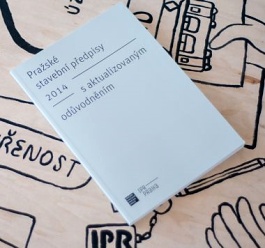
The Prague city council approved the amendment to the Prague Building Regulations
 |
The amendment modifies the detailed description of terms and does not allow for various interpretations. The amended PSP will also be able to correct the definition of built areas in the future in conjunction with the Metropolitan Plan and clarifies terms such as built-up, buildable, and non-buildable in relation to terms in the building law.
As an example of the discrepancies, Boháč mentioned the case of Divoká Šárka, which is considered a built area from the perspective of the building law. "This technical amendment to the PSP, alongside the future Metropolitan Plan, will eliminate this inconsistency between the legal and actual state," Boháč stated.
The PSP was approved by the council of the capital city in July 2014 and came into effect on October 1, 2014. The regulations aim to allow the construction of a sustainable city with trees in the streets and new buildings that respect the character of their surroundings. Every new or reconstructed street wider than 12 meters is to have a row of trees. Unnecessary underpasses and overpasses should not be created, with priority given to barrier-free crossings. It also sets height regulations for new constructions.
The English translation is powered by AI tool. Switch to Czech to view the original text source.
0 comments
add comment
Related articles
1
23.10.2018 | Prague has definitively approved the amendment to the Prague Building Regulations
0
18.07.2018 | The council approved the amendment to the Prague Construction Regulations
0
26.06.2018 | The council of Prague did not approve the amendment to the Prague Building Regulations
0
26.06.2018 | The council will discuss the amendment to the Prague Building Regulations
0
23.06.2016 | Experts: Prague's building regulations are confusing and nonsensical
1
07.10.2014 | Pražské stavební předpisy jsou v rozporu se zákonem






